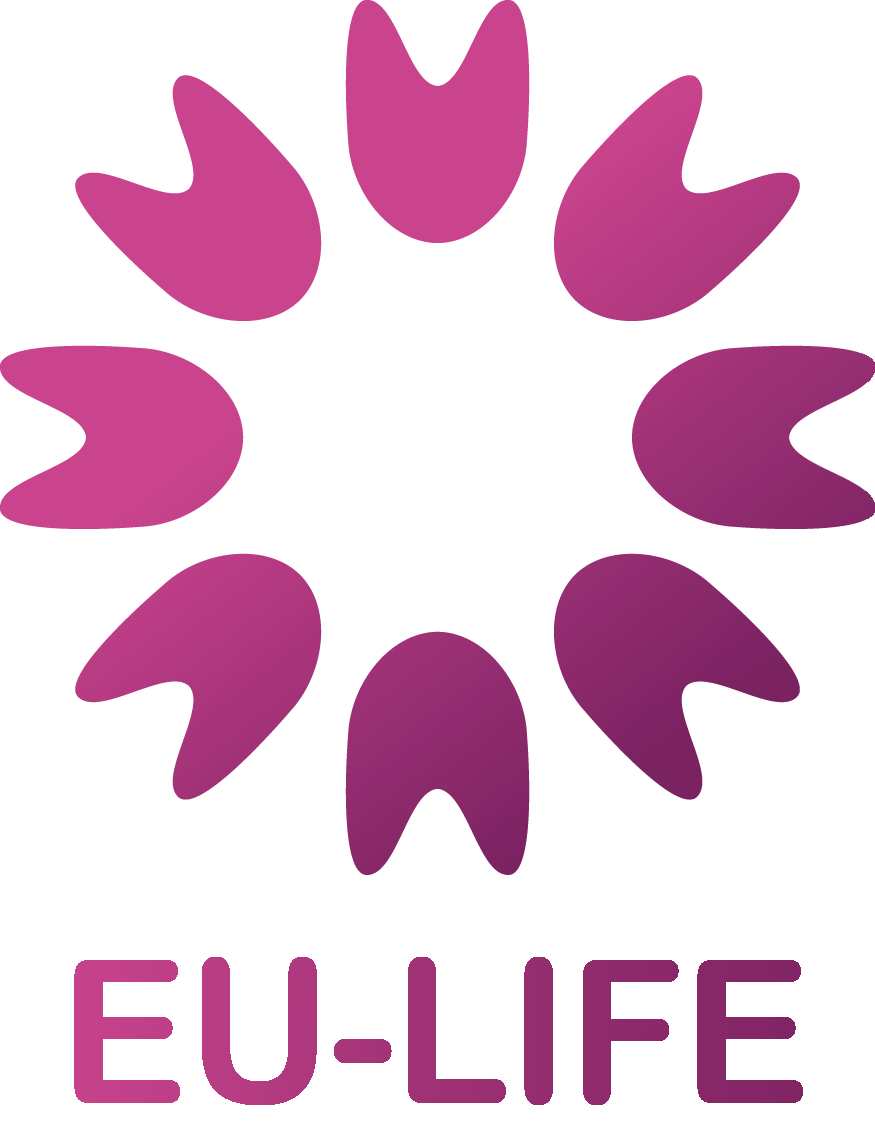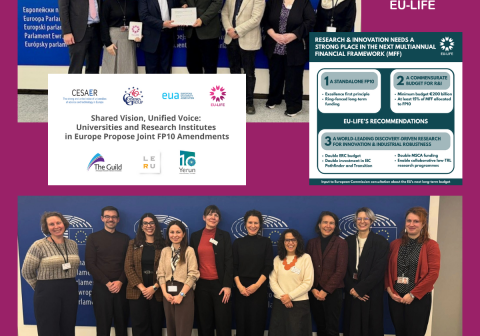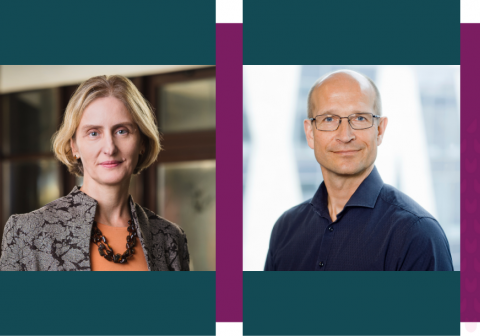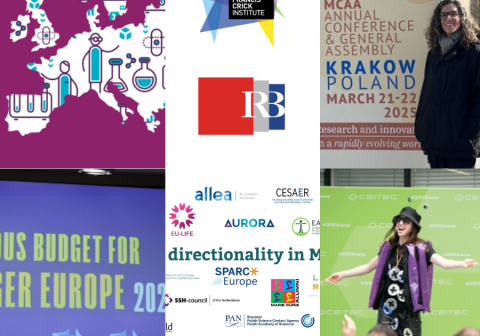Rapping optogenetics: an interview with Eleonore Ocaña
Eleonore Ocaña is a PhD student at the Rayon Group in The Babraham Institute (Cambridge, UK). She was the winner of the EU-LIFE Science Vision Talk Contest, hosted by CEITEC in Brno, Czech Republic, on 22 May 2025.
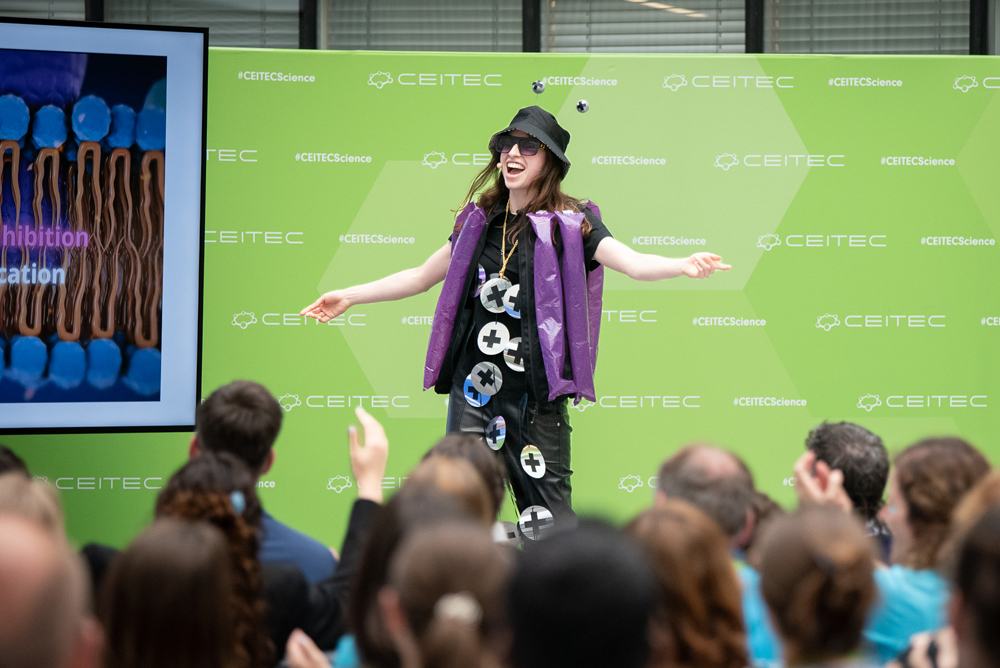
Congratulations on your EU-LIFE Science Vision Talk Contest award! Could you share with us your experience as contestant?
I am very grateful to have taken part in the EU-LIFE Science Vision Talk Contest because it is absolutely one of the highlights of my PhD experience! It was very fun being one of the contestants, I have great memories from all the social experiences including the rehearsal we did on the day of arrival. We all underestimated the time it would take but it was great fun testing the stage and audio equipment, having a sneak peek into the different performances, and cheering each other on!
The stage team were brilliant, and it was such a unique experience! I always feel nervous at the very last moment right before I have to go in front of an audience so there wasn’t much I could do about that. Putting yourself out there in front of many people can definitely be nerve-wracking but we all had so much fun and I was lucky to have such an interactive audience. Those 4 minutes during the contest flew by! Another great moment was the celebration and party after the contest! We all danced the night away and I am so happy to have connected with great people.
Could you tell us a bit about your research? What did you rap about?
My research is focused on understanding the role of protein stability in developmental timing at an organismal level. If you compare the timing of development between different species such as human and mouse for example, the sequence at which certain morphological features arise is broadly conserved, however, the timing differs! Why? The precise mechanisms controlling the timing of the pace of development are not well understood. I work mainly with pre-implantation embryos, but also with mouse embryonic stem cells in vitro. We are using diapause, a naturally occurring mechanism that temporarily halts development in some animals, to slow down the pace of development and measure how protein kinetics are rewired.
I rapped about optogenetics! This is a very fascinating tool composed of genetically encoded light-activatable proteins that can be used to control the activity of biochemical pathways within milliseconds with subcellular specificity! The first optogenetic systems utilised in neurons were rhodopsin ion channel proteins which were used to activate or inhibit specific neural pathways. Over time, the field has advanced to include other photosensitive protein domains to perturb gene expression and control different types of cell behaviour.
Optogenetics has impacted many fields including the field that I work in, developmental biology, where it has been used to control processes like cell contractility (De Renzis Lab). Excitingly, optogenetics has been used to explore in more detail the role of ions and electrical membrane potential in embryo patterning and morphogenesis (Levin Lab).
Had you any previous science communication experience? Why did you decide to participate in the contest?
I have taken part in in some outreach activities with local schools organised by the Babraham Institute’s Public Engagement team, where we lead hands-on lab experiments with children. I’ve also taught high school children about research topics studied at The Babraham Institute. It’s always fun showing children science that they may have not been aware of, and venturing beyond the textbook!
I decided to participate because I felt that it was something out of my comfort zone and whenever that happens, I tend to just go for it anyway (within reason)! I don’t regret putting myself out there, it was an amazing experience and I met such great people!
How did you become your institute’s champion?
It all started with a pitch. Initially I never planned on doing a rap but I must have sold the idea enough to convince the panel! I had planned to do an interactive talk with lights and costume. I think the idea itself was quite unique but then I had a bit more time to explore how to bring it to life in the best way possible!
I spent some time reading quite a lot of optogenetics papers (it was a great excuse) and on one night, I had a dream where Snoop Dog was rapping about optogenetics. The next day, I wrote the rap! I went to Honor and Louisa’s Communications team office to show them and they loved it at first rap! I also want to thank Honor for making a fantastic music video and costume to accompany the rap and for her general creativity.
What have you learned from the whole experience? Is there anything you would have done differently?
You will never regret leaving your comfort zone! You just have to go for it, give it your best shot and enjoy whatever you do to the fullest! I wouldn’t have changed a thing.
What are your plans for the future? Do they include any kind of outreach activities like the EU-LIFE Science Vision Talk Contest?
There are many more things that I would like to learn in research so I would love to continue my research path!
Ultimately, I wanted to become a scientist because I find the research I do fascinating, but I also want to use my expertise and curiosity to help people. For these reasons, I am curious to learn more about translating scientific research. I plan to maintain my involvement with outreach activities, although probably without the bucket hat and ion-flowing gilet!
